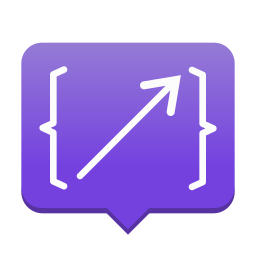About kazv
kazv is a convergent Matrix client and secure messaging app.
The latest version of kazv is v0.6.0. The latest version of libkazv is v0.8.0.
You can download kazv on the Releases page.
Screenshots
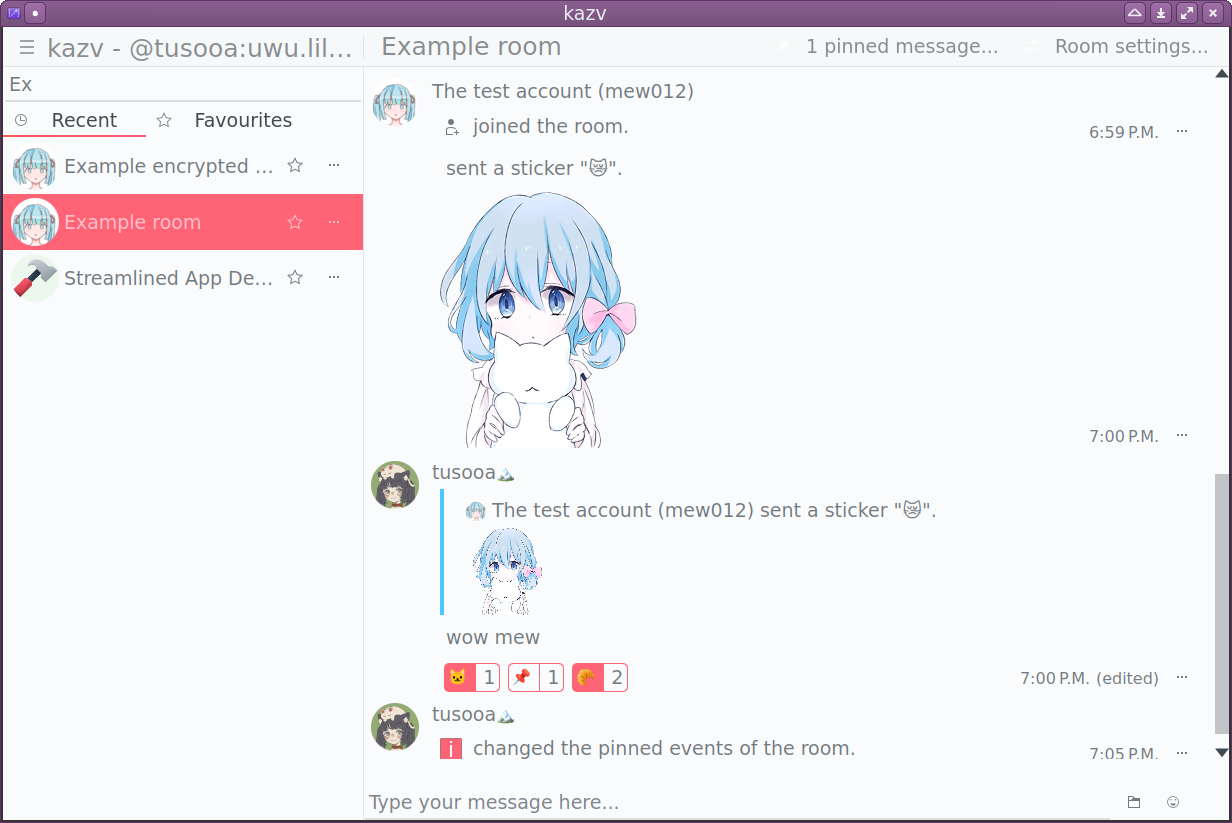
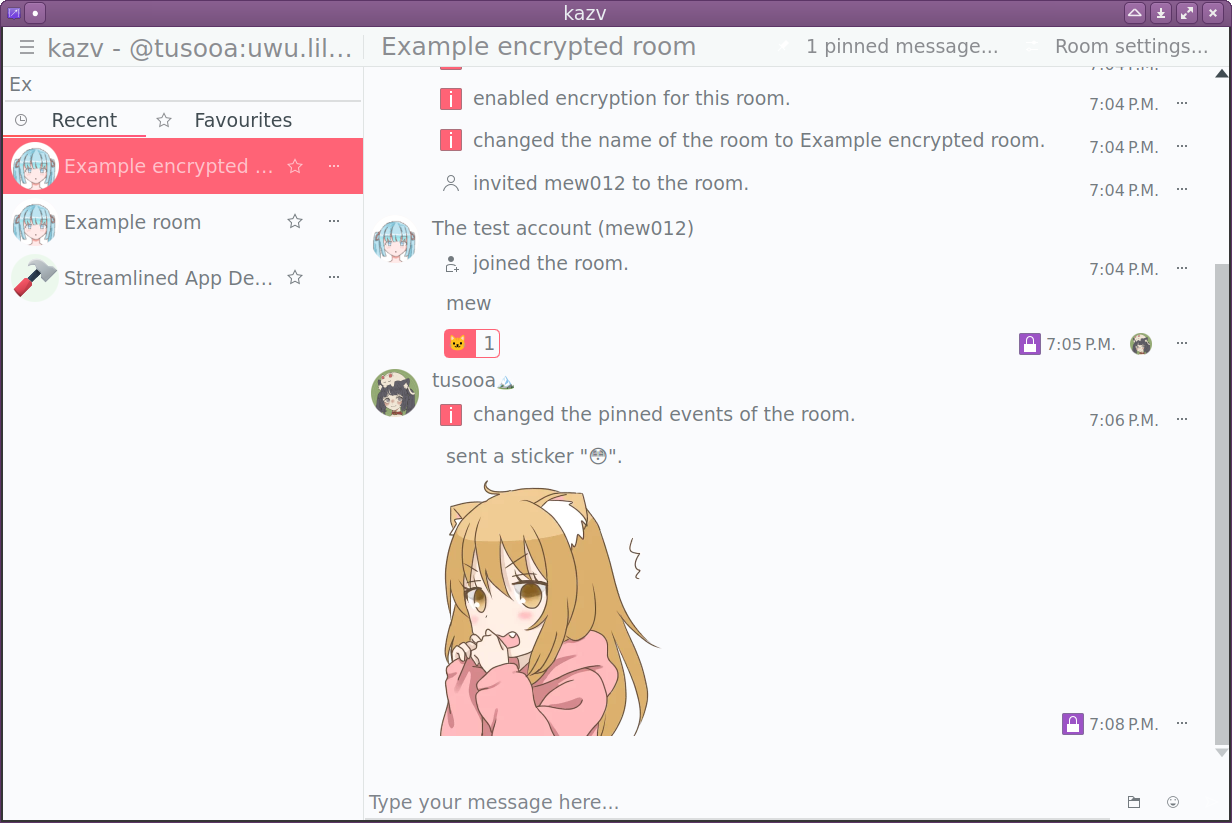
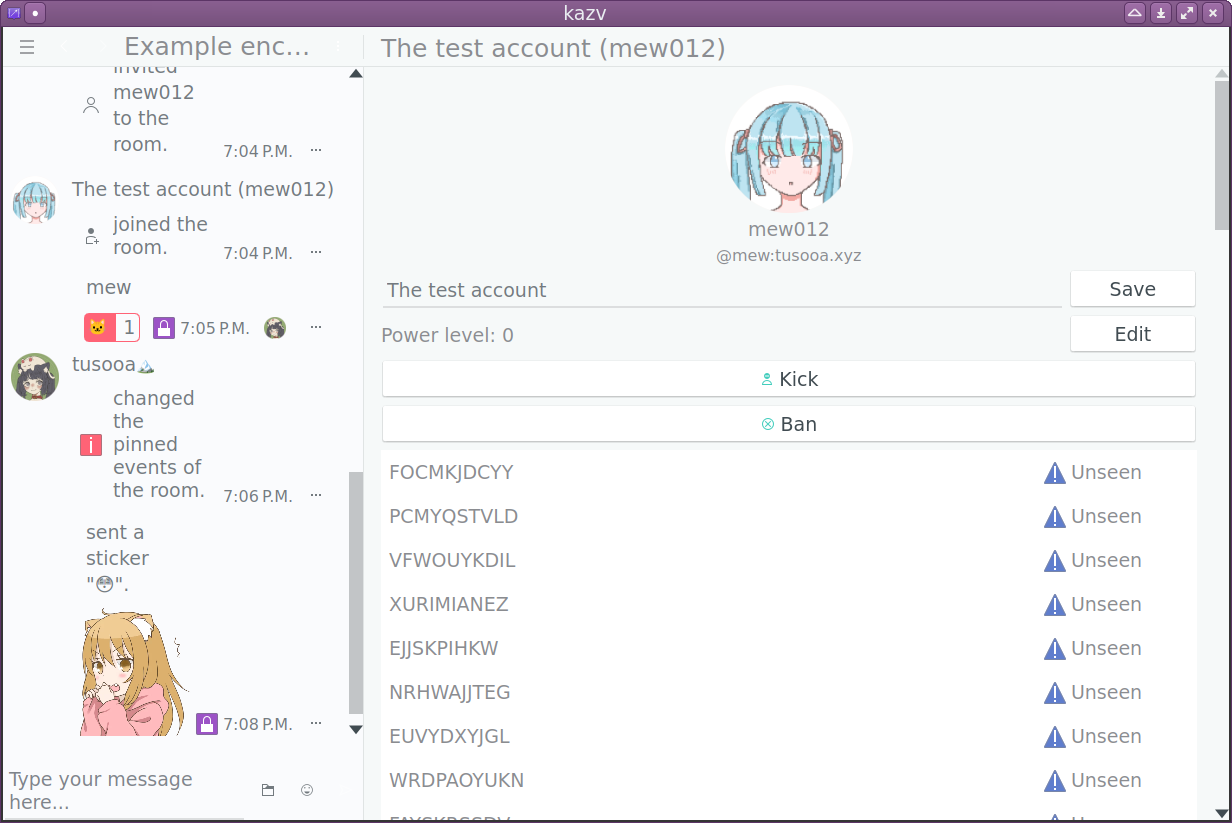
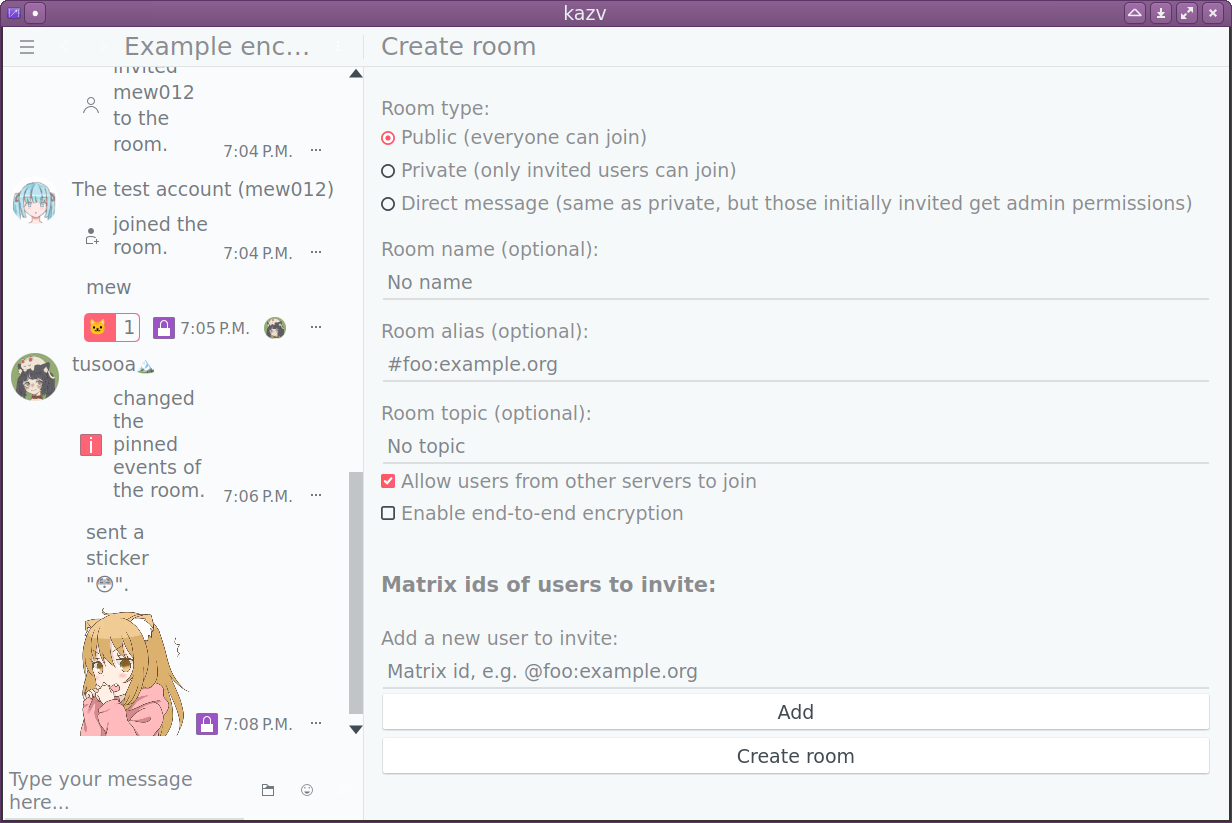
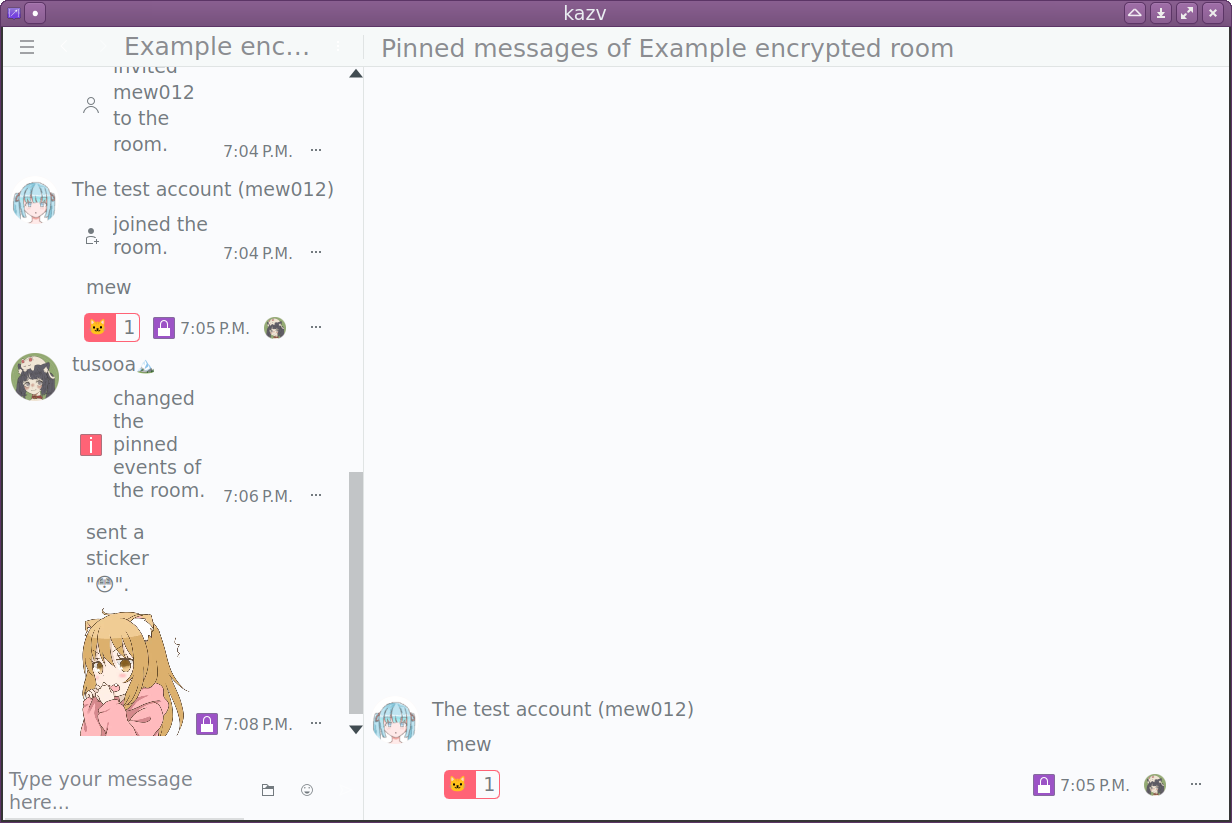
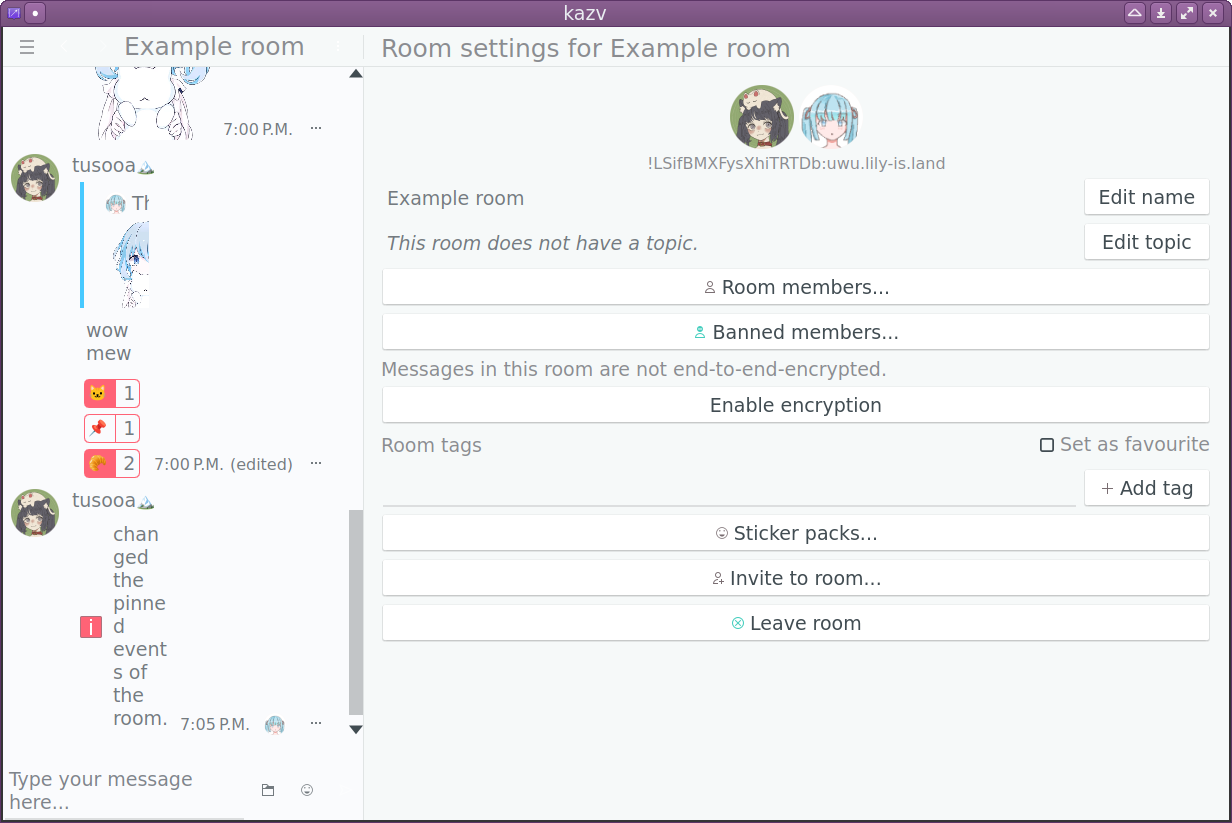
Motivation
Why was the Kazv Project founded in the first place?
A messaging app
We use Matrix as a substitute for non-free, insecure messaging apps, and privacy in conversations is a thing that cannot be ignored. For us, end-to-end encryption is a key feature, not an optional add-on. Features such as spaces and person or room discovery are nice to have, but not necessary. Identity servers encourage people to bind their account to maybe sensitive personal information and thus is not privacy-friendly, so we see this as potentially detrimental.
Many other Matrix projects do not prioritize private communication features, so they do not meet our goals.
Social networking is not a goal of the Kazv Project.
Simple, yet customizable
We would like to keep the UI simple, yet customizable. Too many applications today disregard customizability, but we are not of them. Specifically, we have developed a fully-functional shortcut library that allows users to customize the shortcuts for various actions.
Native and convergent
Some other Matrix clients are not written using native toolkits. They do not conform to the theming and colour sets of the platform they are running on. Worse still, some “cross-platform” clients, for example, Element, are actually multiple pieces of software on different systems, instead of one. They do not share the same code base, and have subtle differences that often cause frustration when users switch from one platform to another. kazv uses Qt and QML, which allows it to be native and convergent, offering the same experiences on different platforms.
Source code repositories
kazv is free/libre and open-source software, released under GNU AGPL v3 or later. You can obtain its source code on Lily Islands, our GitLab instance:
- Repository for kazv
- Repository for libkazv, the library that does the heavy lifting for interacting with the Matrix protocol
There are mirrors of these repositories. You can learn more about it in the contributing guide.
Contributing
See contributing guide for more information.
